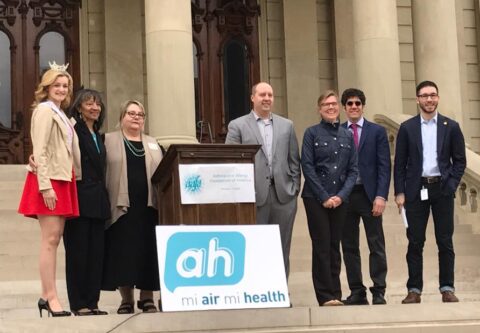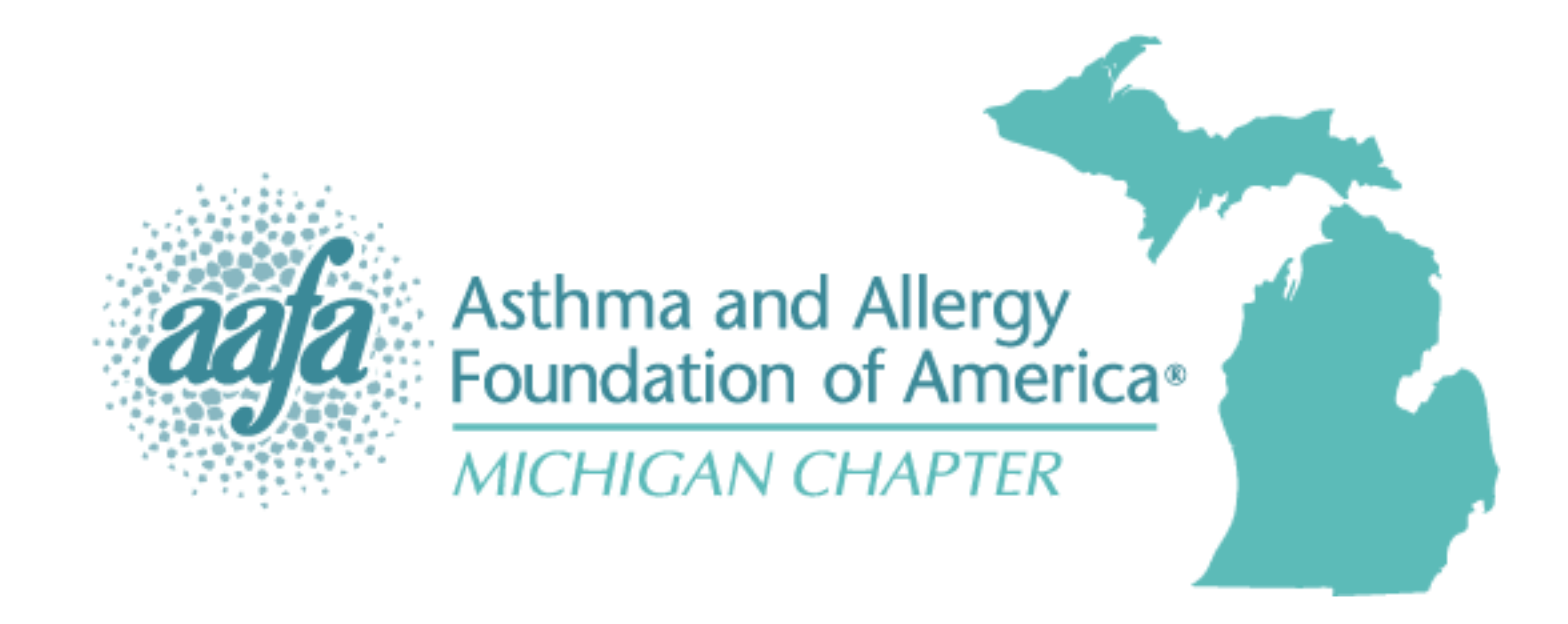
With warmer temperatures and increasing frequency of natural disasters, the consequences of climate change on human health are undeniable. Increased air pollution is detrimental to health, with impacts being seen in the neurological, cardiovascular, and respiratory systems.
The Asthma and Allergy Foundation of America, Michigan Chapter (AAFA-MI) is one of four AAFA national chapters—also covering New England, Alaska, and St. Louis—dedicated to reducing the burden of disease for people with asthma and allergies by providing support, advocacy, education, and research. For this U.S. Energy Foundation (EF) grantee, climate advocacy is becoming increasingly prevalent in their work since climate contributes to the negative health outcomes of individuals with asthma and allergies.
“The science is very firm that pollution, ozone, and other air quality issues adversely affect those with asthma and allergies, causing exacerbations,” says AAFA-MI’s Executive Director Kathleen Slonager, a registered nurse and certified asthma educator.
EF’s mission to secure a clean and equitable energy future to tackle the climate crisis goes hand-in-hand with AAFA-MI’s health advocacy work. “Investing in clean energy infrastructure is a critical element in significantly reducing adverse health impacts within vulnerable communities often most impacted by harmful emissions,” says Kimberly Bruce, EF’s Program Director of Midwest Communications.
AAFA’s Asthma Disparities in America report revealed that the burden of asthma falls disproportionately on BIPOC communities. These health disparities—which are differences in health outcomes—are often caused by systemic racism embedded in the healthcare system as well as social determinants, including socioeconomic status, physical environment, and access to healthcare.
In response to the report findings, AAFA launched its Health Equity Advancement and Leadership (HEAL) Program to directly address the health disparities impacting these communities. “It’s just not the chronic disease—it’s the nutrition, it’s access to medication, it’s all these other things that we know about,” says Slonager. AAFA-MI served as a pilot program for HEAL, providing resources such as access to asthma specialists, visits with nutritionists, free family memberships to the local YMCA, and access to farm fresh food boxes, all meant to improve participant’s overall physical health. In the two years since the implementation of HEAL, AAFA-MI has seen several improvements in the health outcomes of participants, including fewer visits to the emergency room and increased confidence in individuals managing their condition.
Alongside the HEAL Program, AAFA-MI has collaborated with community health workers to reach people who may not be familiar with their programs. “We feel that community health workers can be such a change-maker for asthma and all kinds of other chronic issues,” says Slonager. AAFA-MI has recently provided asthma education for the Michigan Community Health Workers Association, to expand their knowledge on asthma management and help community members understand their diagnosis.

AAFA-MI’s work in asthma education is helping individuals lead healthier lifestyles, but it can’t solve the root problem of a hotter climate. “We can educate and train folks on how to feel better when they are living with asthma, but when they step outside their door, there’s not a lot of control,” says Slonager.
The key to reducing the impacts of climate on health, according to Slonager, is policy change. “We support policies that consider health first and foremost. If we don’t, then we’re just not going to have a planet that is hospitable.”
AAFA-MI advocates for pathways that support clean air for everyone. Reducing the emissions of harmful air pollutants—like greenhouse gas emissions from the transportation, power, and methane gas sectors, all of which are priorities for EF—is a key issue for which AAFA-MI advocates. Additionally, AAFA-MI educates decision-makers on the benefits of strong regulations and standards on these sectors to reach a 50-52% reduction from 2005 greenhouse gas emissions by 2030.
By uniting education, collaborations, and advocacy, AAFA-MI is standing strong against the adverse health outcomes brought forth by climate change.
 Story author Diana Gomez-Ochoa was a U.S. Energy Foundation intern in the summer of 2024.
Story author Diana Gomez-Ochoa was a U.S. Energy Foundation intern in the summer of 2024.

